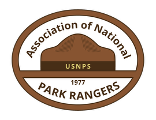For Immediate Release
July 25, 2025
Contact: Rick Mossman, President, Association of National Park Rangers; rmossman@anpr.org
Contact: Bill Wade, Executive Director, Association of National Park Rangers; bwade@anpr.org; 520-444-3973


The U.S. Association of National Park Rangers (ANPR), a charter member of the International Ranger Federation, will celebrate World Ranger Day July 31 and encourages all Americans to honor and make your voices heard in support of the world’s park rangers that day. On this annual day of recognition, we recognize the extraordinary work of rangers across the globe and remember those who made the ultimate sacrifice defending mountains, forests, oceans, wild life, and cultural resources. Often working behind the scenes, rangers are at the heart of a transformation in conservation—supporting both people and nature in the face of climate change, political upheaval, and the biodiversity crisis.
Rangers are deeply rooted in the communities they serve. They are not only stewards and the guardians of nature and cultural resources, but frontline responders in times of environmental, and human-caused crisis.
However, this vital work comes at a cost. Tragically, this year has seen an increase in the number of rangers killed in the line of duty, with the highest percentage caused by fires. Homicide, by poachers and others illegally exploiting the natural resources of protected areas, was the second largest cause of deaths. Worldwide, 174 rangers died (four in North America) while carrying out their duties. Despite these risks, on World Ranger Day, and every day, we recognize their courage, resilience, and unwavering commitment to safeguarding our planet.
“Today we remember those rangers who have fallen, making the ultimate sacrifice to save and protect wild places, wild things, and the visitors who travel to see these places. We applaud those rangers working today who are spending their lives protecting this earth under increasingly difficult environmental, social, and political conditions,” stated ANPR President Rick Mossman.
In the United States, the resources that national park rangers pledge to protect, as well as the jobs and livelihoods of those rangers, are also at unprecedented risk – sadly, from the actions of their own government.
Since January 2025, more than 24 percent of the National Park Service (NPS) permanent workforce has been driven out from firings, coerced resignations, unnecessary and unwelcome reorganizations, and pressured retirements by those who choose to keep up a constant assault on public servants. The current administration also has instituted, and repeatedly extended, a hiring freeze resulting in huge gaps in the capacity of the ranger workforce to serve the public and protect the resources. They’ve also put up so many barriers to hiring seasonal staff that most parks have far fewer summer staff than in a typical year.
Significantly more indiscriminate firings – a “reduction-in-force” described by the administration as “deep and blunt” – are expected soon, driven more by ideology than any analysis of “government efficiency.” “The purpose of this, according to the current administration, is to ‘trim the fat.’ However, what it is really doing is amputating the capability of the NPS to carry out its mission,” said Mossman.
Regardless of how Americans voted in 2024, there’s no evidence they want to see the world’s finest national park system decimated. Polling consistently shows the NPS has the highest favorability rating of all federal agencies, and that voters do not want to see funding or staffing for the NPS decreased. They do not want to see rangers or scientists fired, crippling the NPS’ ability to fulfill Congress’ mandate that management of the parks be “enhanced by … the highest quality science and information.” Nor do they want to see these authentic places watered down with only positive stories prioritizing nostalgia over the truth, as recently directed by Secretary of the Interior Burgum, also in violation of a Congressional mandate that the Service “ensure… the highest quality interpretation and education.”
The 433 places protected by the NPS are in every state, and collectively, bring in over $55 billion to the American economy – $16 times every dollar the government invests in them. Communities near NPS sites benefit tremendously from the presence of their nearby parks. Cutting the NPS budget and staff hurts the local and national economy – it is the opposite of a “government efficiency!”
This World Ranger Day, we call on governments, conservation agencies, donors, and civil society to take urgent, coordinated action by elevating the ranger profession with the recognition and protection it deserves. Rangers are not just defenders of wild life and protected and conserved areas, but they also are planetary health workers, often operating in isolation, under-resourced, and under threat—yet they continue to serve with professionalism and commitment.
It is important to remember that we need more rangers, not fewer, if we are to continue to protect the world’s most important places for both the health of the earth, and for humanity.
 Treat the national parks like you own them – because you do! Respect the rules, take out all your trash, and be safe. Respond to the QR code requesting feedback on negativity in parks and tell the administration what you really think of what they are doing to national parks and the park rangers that protect them. Make them hear you!
Treat the national parks like you own them – because you do! Respect the rules, take out all your trash, and be safe. Respond to the QR code requesting feedback on negativity in parks and tell the administration what you really think of what they are doing to national parks and the park rangers that protect them. Make them hear you!
ANPR President Rick Mossman reminds us that, “A thousand years from now the world won’t remember failed presidents, CEOs, generals, or who had the most money. But we as a people will be judged by how much of nature, wild places, and wild things we saved for future generations. Rangers are unsung heroes, doing some of the most important work, and protecting some of the most important places, in the world – protecting those things that can’t protect themselves.”
For more information on World Ranger Day and the global challenges rangers face, visit the International Ranger Federation.
For more information about the National Parks in crisis and what you can do, visit National Parks Conservation Association.